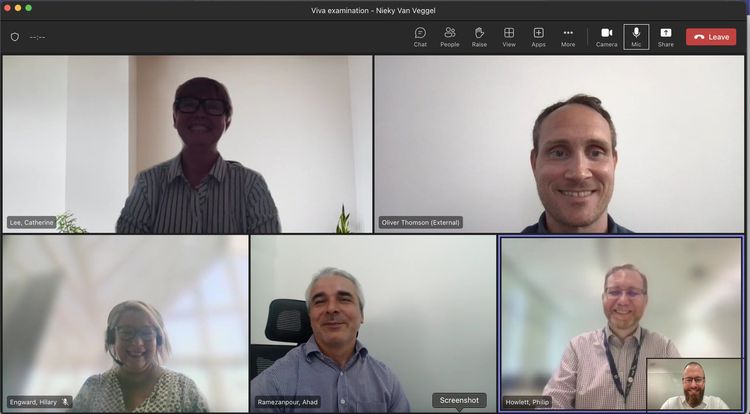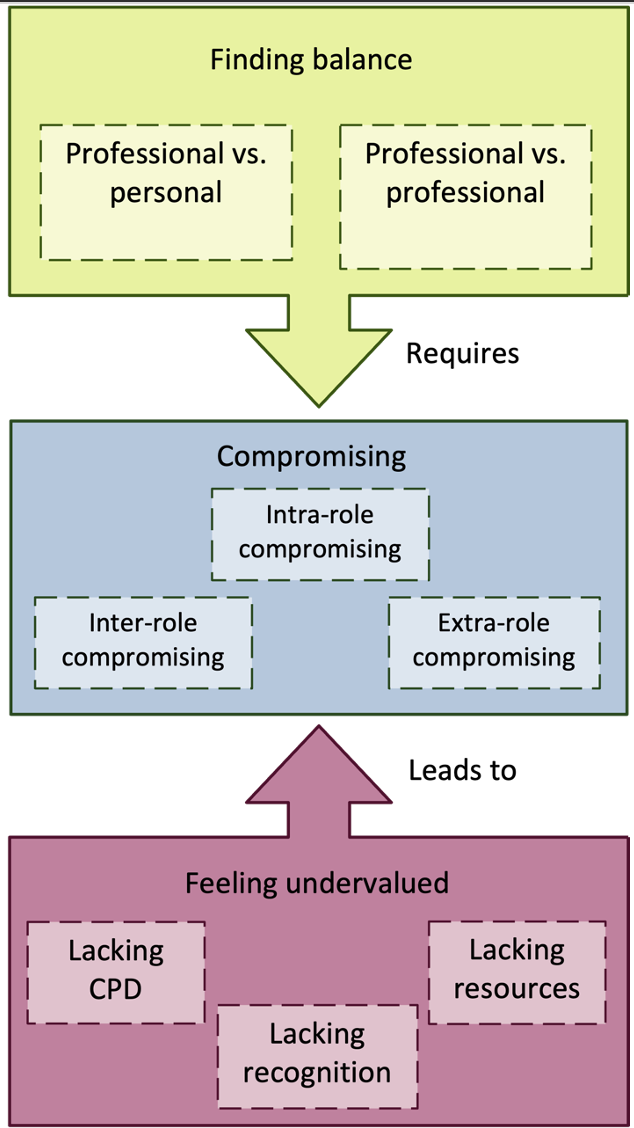Grounded Theory in the Age of AI: Navigating the Future of Qualitative Research

In the realm of social sciences, grounded theory stands as a beacon of innovation—a methodology that turns traditional research on its head. Unlike hypothesis-driven approaches, grounded theory embraces a data-first philosophy, allowing theories to sprout organically from the rich soil of empirical evidence. At its core lies the powerful mantra "all is data," a principle that throws open the doors to a vast array of information sources, from in-depth interviews to personal anecdotes.
But what happens when this time-honored approach collides with the cutting edge of technology? Enter generative AI and large language models (LLMs), the new kids on the research block. These digital powerhouses are revolutionizing how we process and analyze textual data, offering a tantalizing glimpse into the future of qualitative research.
Imagine a research assistant that never sleeps, capable of sifting through mountains of data in the blink of an eye. That's the promise of AI in qualitative research. From streamlining data collection to uncovering hidden patterns in coding, these tools are poised to transform every stage of the research process. But it's not just about speed—it's about freeing researchers to dive deeper into interpretation and theory-building, the very heart of qualitative inquiry.
In this post, we'll embark on an exciting journey, exploring how AI and LLMs can be woven into the fabric of grounded theory. We'll investigate their potential to supercharge data analysis, enhance coding precision, and even contribute to theory development. But we won't shy away from the challenges either. As we navigate this new terrain, we'll confront the unique risks and obstacles that researchers—especially those new to both grounded theory and AI—may encounter.
Join me as I peer into the future of qualitative research, where human insight and artificial intelligence join forces to unlock new realms of understanding. It's a brave new world, and we're all novices here—so let's explore it together.
The Dynamic Duo: AI and Grounded Theory
Imagine a world where the meticulous craft of grounded theory meets the lightning-fast processing power of artificial intelligence. It's not science fiction—it's the cutting edge of qualitative research. Grounded theory, with its flexible, data-driven approach, has long been a powerhouse in qualitative research. But add AI and large language models (LLMs) to the mix, and you've got a recipe for research revolution.
Let's break it down:
- Data Collection on Steroids Gone are the days of painstaking manual transcription. AI can now convert hours of interviews into text in mere minutes. But that's just the beginning. Picture AI as your tireless research assistant, scouring the internet for relevant data from social media, forums, and digital archives. The result? A treasure trove of information at your fingertips, ready for analysis.
- Coding and Analysis: AI as Your Co-Pilot Here's where things get really exciting. LLMs can sift through mountains of data, spotting patterns and themes that might take a human researcher weeks to uncover. They can suggest codes, highlight recurring motifs, and even categorize data. It's like having a brilliant colleague who never sleeps, always ready with fresh insights.
- Theory Development: A Meeting of Minds But AI isn't here to replace human creativity—it's here to enhance it. By identifying underlying patterns and suggesting novel connections, AI can spark new ideas and perspectives. Imagine drafting preliminary theoretical frameworks with the help of an AI that's processed more text than any human could read in a lifetime. The potential for nuanced, sophisticated theories is mind-boggling.
The Big Picture
By integrating AI and LLMs, grounded theory researchers can:
- Boost efficiency by automating time-consuming tasks
- Enhance accuracy in data analysis
- Broaden the scope of their research with access to larger datasets
- Develop richer, more comprehensive theories
It's a brave new world for qualitative research. By harnessing the power of AI, researchers can dive deeper into complex social phenomena, uncovering insights that might otherwise remain hidden. The result? More robust, nuanced theories that push the boundaries of our understanding.
As we stand on the brink of this AI-powered research revolution, one thing is clear: the future of grounded theory is looking brighter—and smarter—than ever before.
Navigating the AI Minefield: Challenges in the New Frontier of Grounded Theory
While the marriage of AI and grounded theory promises a research revolution, it's not all smooth sailing. Let's pull back the curtain on some of the thorny issues researchers face as they venture into this brave new world.
The Bias Blind Spot
Picture this: You've unleashed your AI assistant on a mountain of data, and it comes back with fascinating insights. But wait—could these insights be tainted by hidden biases lurking in the AI's training data? It's a real concern. In the nuanced world of qualitative research, context is king. Researchers must don their detective hats, critically examining AI-generated findings and cross-checking them against human-coded data. It's a delicate dance of man and machine, ensuring the integrity of our research remains intact.
The AI Crutch
Here's a paradox: The very tools designed to enhance our research could potentially undermine its foundations. Grounded theory thrives on researchers getting their hands dirty with data, allowing theories to bubble up organically. But there's a risk of becoming too dependent on our AI sidekicks, potentially missing those subtle, human insights that often lead to breakthrough theories. The key? Use AI as a brilliant assistant, not a replacement for your analytical skills and intuition.
Ethical Eggshells
Venturing into AI-assisted research is like walking through an ethical minefield. Data privacy, informed consent, the mysterious "black box" of AI algorithms—these are just a few of the landmines researchers must carefully navigate. Transparency is your shield here. We need to ensure our participants' privacy is ironclad and that we can explain, in plain language, how our AI tools are crunching the numbers.
The Skills Gap
Let's face it: Not every qualitative researcher is a tech wizard. The learning curve for effectively wielding AI tools can be steep, potentially creating a divide between the AI-savvy and the AI-shy. This could lead to a two-tiered research world, where only those with technical know-how or resources can tap into AI's potential. Bridging this gap through training and collaboration with data scientists is crucial for democratizing these powerful tools.
Keeping It Real
At its heart, grounded theory is about getting up close and personal with your data. There's a valid concern that AI might create a disconnect, potentially leading to theories that look good on paper but don't truly reflect reality. The challenge? Striking a balance where AI enhances rather than replaces the researcher's deep engagement with the data.
The Road Ahead
Despite these challenges, the potential of AI in grounded theory research is too great to ignore. The key lies in a thoughtful, balanced approach. We must harness AI's strengths while staying true to the principles that make grounded theory so powerful.
As we forge ahead, researchers must remain vigilant guardians of their craft. By critically engaging with AI tools, maintaining ethical standards, and never losing sight of the human element in research, we can navigate these choppy waters. The result? A new era of grounded theory research that combines the best of human insight with the power of artificial intelligence.
The Future of Grounded Theory: Riding the AI Wave
As we stand on the brink of a new era in qualitative research, the integration of AI and LLMs into grounded theory is not just a possibility—it's an inevitability. This fusion of human insight and machine intelligence promises to reshape how we approach qualitative studies, analyze data, and build theoretical frameworks. But as we embrace this technological revolution, we must also ensure we don't lose sight of the core principles that make grounded theory so powerful.
The AI-Powered Research Revolution
Imagine a research world where:
- Efficiency goes through the roof: AI automates time-consuming tasks like transcription and initial coding, allowing researchers to tackle larger, more complex datasets than ever before.
- Hidden insights come to light: AI's ability to process vast amounts of text uncovers connections and themes that might slip past even the most diligent human researcher.
- Theories become more robust: With access to broader and deeper data analysis, researchers can develop more comprehensive, nuanced theoretical frameworks.
But here's the rub: as we harness the power of AI, we must ensure that the heart of grounded theory—letting data drive theory—remains intact. It's crucial that researchers maintain a critical eye, seeing AI-generated insights as a starting point for deeper analysis, not the final word.
Preparing the Next Generation of Researchers
As AI becomes an integral part of the research toolkit, we need to rethink how we train qualitative researchers. Here's what the future of researcher education might look like:
- Grounded Theory Boot Camp: Doubling down on core principles like iterative analysis, emergent theory development, and the art of coding and memoing.
- AI Literacy 101: Introducing researchers to the basics of AI and machine learning, helping them navigate AI software and interpret its outputs critically.
- Ethics in the AI Age: Tackling the thorny issues of data privacy, consent, and algorithmic bias head-on.
- Bridging the Divide: Fostering collaboration between qualitative researchers and data scientists to create a new breed of interdisciplinary super-researchers.
The Road Ahead
As we navigate this exciting new terrain, the key will be maintaining a delicate balance. We must harness the incredible potential of AI to enhance our research capabilities while staying true to the methodological rigor and human insight that are the hallmarks of quality grounded theory research. The future of grounded theory in the AI age is bright, but it requires us to be adaptive, critical, and ever-mindful of the core principles that guide our work. By embracing this technological revolution thoughtfully, we can usher in a new era of qualitative research that's more comprehensive, insightful, and impactful than ever before.
Are we ready to ride the AI wave while keeping our grounded theory roots firmly planted? The adventure is just beginning!
Conclusion
As we stand at the crossroads of tradition and innovation, the integration of AI and large language models (LLMs) into grounded theory research heralds a new era in qualitative methodologies. This fusion promises to supercharge our research capabilities, but it also challenges us to stay true to the core principles that have made grounded theory a cornerstone of qualitative research.
The AI Advantage:
Imagine turbocharging your research process:
- Lightning-fast data processing
- Smart initial coding that uncovers hidden patterns
- The ability to tackle massive datasets with ease
These AI-powered enhancements have the potential to elevate our theoretical frameworks, grounding them in richer, more comprehensive empirical data than ever before.
Navigating the Challenges:
But hold on—this isn't a simple plug-and-play solution. As we embrace AI, we must remain vigilant:
- Bias Check: AI algorithms can inherit biases. It's on us to critically evaluate their outputs.
- Human Touch: AI should complement, not replace, our analytical judgment.
- Ethical Minefield: Data privacy, informed consent, and algorithmic transparency demand our attention.
- Skill Up or Ship Out: Researchers need new technical skills to harness AI effectively.
Charting the Course Ahead:
As we venture into this brave new world, here's what the future might hold:
- Balanced Integration: Marrying AI capabilities with grounded theory principles.
- Evolving Education: Training programs that blend traditional methodologies with AI literacy.
- Critical Thinking 2.0: Emphasizing researcher reflexivity and critical evaluation of AI insights.
- Bridging Disciplines: Fostering collaboration between qualitative researchers and data scientists.
The AI revolution in grounded theory research is here, bringing both incredible opportunities and significant challenges. Our task is to harness these powerful tools while maintaining the methodological rigor that defines quality research.
By thoughtfully integrating AI, we can push the boundaries of what's possible in qualitative research. The result? Theories that are not only deeply rooted in empirical data but also benefit from the analytical power of cutting-edge technology.
As we embark on this exciting journey, let's remember: the goal isn't to replace human insight with artificial intelligence, but to create a synergy that elevates both. The future of grounded theory is bright, powered by the combination of human creativity and machine capability.
Are you ready to be part of this research revolution?





